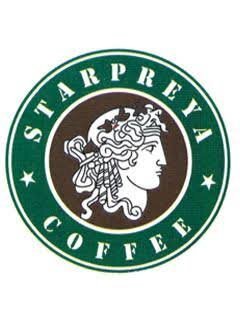Trademark Infringement
Trademark infringement is the unauthorised use of a trademark which violates the exclusive rights attached to an existing trademark registration.
Imagine you have registered a trademark for COPY CAT for clothing. A competitor begins selling its own COPY CAT branded t-shirts without your permission. This would be a clear case of trademark infringement:
Someone is using a trademark:
identical to your registered trademark
for goods that are identical to those covered by your registration
without your permission
If the competitor was selling KOPY KAT branded t-shirts, this would also likely be a case of trademark infringement:
Someone is using a trademark:
similar to your registered trademark
for goods that are identical to those covered by your registration
without your permission
causing consumers to be confused or deceived
Registering a trademark ensures that you have the necessary legal protection to enable you to take action against someone who is infringing your trademark. As a trademark owner, you should remain vigilant and be prepared to defend your rights if necessary by taking legal action in the case of infringement. Start-ups and businesses launching new products or services need to be sure that they are not imitating existing trademarked brands, to avoid being guilty of trademark infringement. Do your homework and make sure your own brand is unique and distinctive! Here are some tips for choosing a good trademark.
While the popular idiom says that, “imitation is the highest form of flattery”, it’s high risk as a strategy when it comes to adopting a new brand.
In New Zealand, the Trade Marks Act 2002 allows for a wide range of civil remedies to compensate registered trademark owners for harm caused by trademark infringement. If your use of a trademark is held to amount to infringement, you could find yourself having to pay damages or an account of profits to the trademark owner - as well as having to stop using the trademark.
In addition, brand piracy or counterfeiting a registered trademark is a criminal offence under New Zealand’s trademark and fair trading laws. A person convicted of brand piracy or dealing in counterfeits could be sentenced to a prison sentence of up to five years or a fine up to NZ$150 000.
Some examples of infringement (and non-infringement)
There are lessons to learn from other trademark infringement cases. Here’s some examples of successful and unsuccessful infringement actions taken around the world by Starbucks. Starbucks’ key trademarks are:
In 2013, after a 12 year battle against Black Bear Micro Roastery, which sells CHARBUCKS BLEND coffee, a US appeal court ruled against Starbucks.
Despite the fact that STARBUCKS and CHARBUCKS sound similar and the goods in question are identical, the court found that results from a survey, presented in evidence by Starbucks, showed there was little to no confusion as to the source of CHARBUCKS and that few consumers believed that Starbucks was the product’s seller.
In 2003, Starbucks filed a trademark infringement action against El Freya in South Korea for their use of a similar word mark STARPREYA and logo.
The court found that STAR is a generic word and the words BUCKS and PREYA are not specific concepts that can be compared. The court also found that the images in their logos were quite different, such that the two marks cannot be seen as the same or confusingly similar. However, other copycats did not get off so lightly.
Starbucks has won a number of other infringement cases against look-alikes (which are arguably less similar than those above).
In India in 2003, Sardarbuksh Coffee & Co. was forced to rebrand and use the name Sardarji-Bakhsh and adopt a different logo.
Similarly, an EU appeal court found that there was sufficient similarity between the circular COFFEE ROCKS logo above and the STARBUCKS COFFEE logo and ruled in favour of Starbucks. Although the level of similarity may seem low at first glance, the general appearance was deemed to be similar, and heightened because of the use of the same colour scheme and the common word COFFEE. The Coffee Rocks example serves as a lesson of the dangers of mimicking a famous brand.
The lessons to learn from these Starbucks ‘wars’ is that firstly, whether your business is big or small, as a trademark owner, you have to be vigilant and proactively protect your brand from instances of trademark infringement. When necessary, you should file a trademark opposition, to prevent a similar trademark from being registered. Secondly, when launching a new business or new product in the marketplace, you should avoid similarity with existing traders’ marks. Be original and then protect your trademark!



